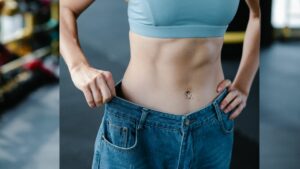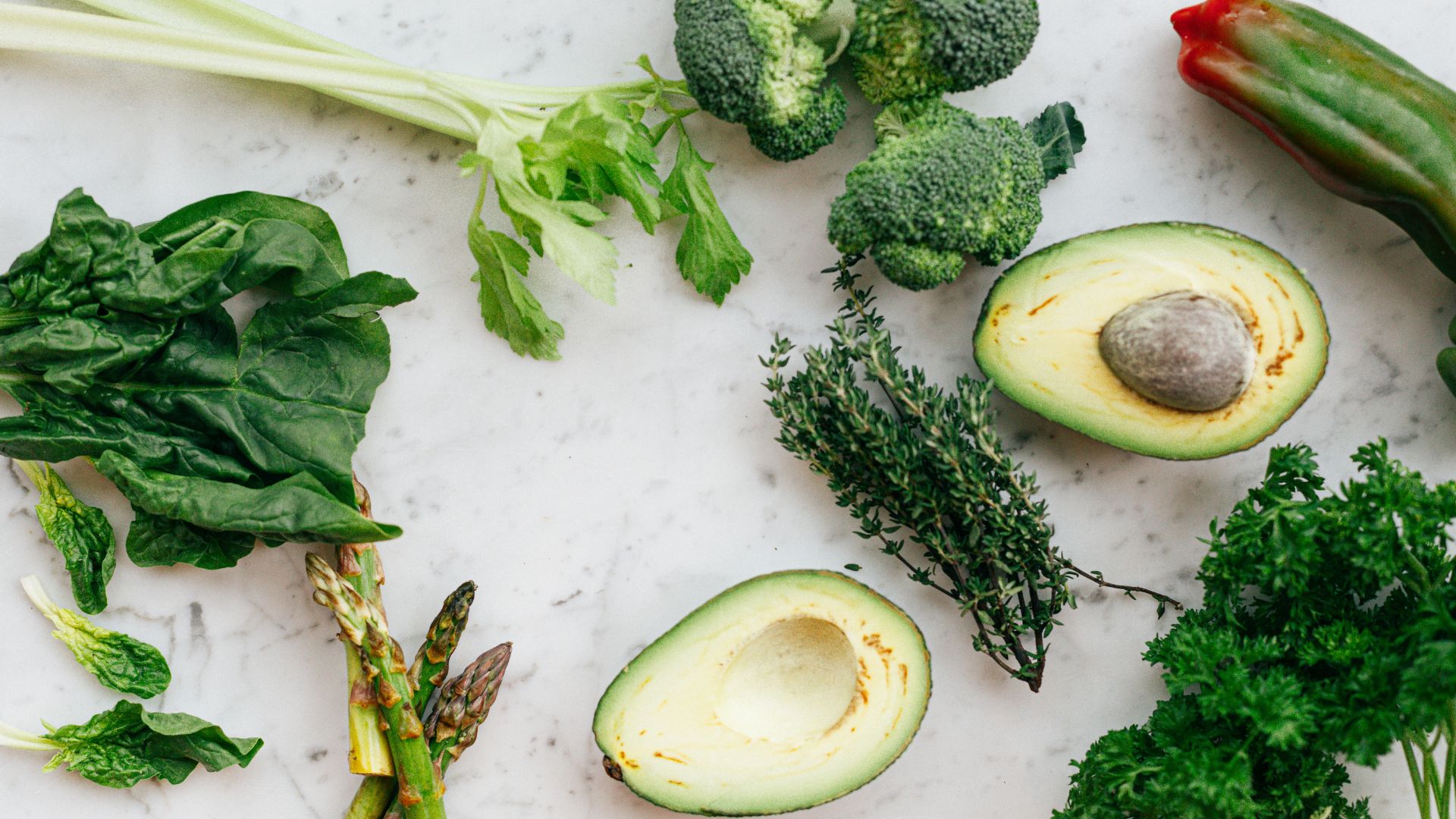Do you have your sights set on getting that toned, sculpted body? You may have heard that squats and eating more vegetables can help you achieve this goal, but can they really deliver the results you‘re looking for? Read on to find out!
Eating vegetables can be part of a healthy diet that can help support muscle tone and overall physical health. However, whether or not you should eat more vegetables while squatting depends on your overall dietary and fitness goals. It’s also crucial to consume a balanced diet that includes a variety of nutrient-dense foods, including vegetables, to support muscle growth and recovery. Consuming enough protein is important for building and maintaining muscle mass. It is recommended to consume around 1.6 grams of protein per kilogram of body weight for optimal muscle growth. However, the relationship between vegetable consumption and muscle growth may not be direct, and more research is needed to fully understand the effects of vegetable consumption on muscle growth.
Eating vegetables can be part of a healthy diet that can help support muscle tone.
Eating vegetables is an important part of a healthy diet, as they provide essential nutrients and fiber that can support overall health and wellness.
Vegetables can help to provide the body with the vitamins and minerals it needs to support muscle recovery and growth, which is important when squatting and engaging in other types of physical activity.
However, whether or not you should eat more vegetables while squatting depends on your overall dietary and fitness goals.
If you are looking to gain muscle mass, it is important to consume enough calories and protein to support muscle growth.
While vegetables can provide important nutrients, they are not typically a significant source of calories or protein.
Instead, you may want to focus on consuming protein-rich foods such as lean meats, eggs, and dairy products, along with complex carbohydrates like whole grains and starchy vegetables.
On the other hand, if your goal is to lose weight or maintain a healthy body weight, adding more vegetables to your diet can be a good strategy.
Vegetables are high in fiber and water, which can help to fill you up and keep you feeling full for longer. This can help to reduce overall calorie intake and support weight loss.
Ultimately, the role of vegetables in your diet while squatting (or engaging in any other type of physical activity) will depend on your individual dietary and fitness goals.
A balanced diet that includes a variety of nutrient-dense foods, including vegetables, is typically the best approach to support overall health and wellness.
While vegetables are an important part of a healthy diet, their direct relationship with muscle growth is not clear-cut. However, vegetables are an excellent source of vitamins, minerals, and antioxidants, which support overall health and wellness. Therefore, it is recommended to consume a balanced diet that includes plenty of vegetables in addition to other nutrient-dense foods such as protein, healthy fats, and whole grains.
Here is a sample chart that shows some examples of nutrient-dense vegetables that can be included in a balanced diet:
Vegetable |
Nutrient Content/100g |
|---|---|
| Spinach | Iron, Vitamin A, Vitamin C, Folate |
| Broccoli | Vitamin C, Vitamin K, Calcium, Fiber |
| Sweet Potato | Vitamin A, Vitamin C, Fiber, Potassium |
| Kale | Vitamin C, Vitamin K, Calcium, Iron |
| Carrots | Vitamin A, Fiber, Potassium |
| Bell Peppers | Vitamin C, Fiber, Potassium |
It is important to note that this chart is not exhaustive and that there are many other nutrient-dense vegetables that can be included in a healthy diet. Additionally, it is recommended to consume a variety of vegetables to ensure that your body receives a wide range of nutrients.

It is also important to consume a balanced diet that includes a variety of nutrient-dense foods.
Consuming a balanced diet that includes a variety of nutrient-dense foods is important for supporting muscle growth and recovery.
When you engage in physical activity such as squatting, your muscles undergo a process of stress and damage, which is necessary for muscle growth and adaptation.
However, in order for your muscles to recover and grow stronger, they need the right nutrients in the right amounts.
Protein is particularly important for muscle growth and recovery, as it provides the building blocks (amino acids) that your muscles need to repair and grow.
However, other nutrients are also important, including carbohydrates and healthy fats, as well as vitamins and minerals that support overall health and wellness.
Vegetables are an important part of a balanced diet, as they are a rich source of vitamins, minerals, fiber, and other important nutrients that support overall health and wellness.
Vegetables can help to provide the body with the nutrients it needs to support muscle recovery and growth, as well as to support other important physiological functions such as immune function and cardiovascular health.
Consuming a variety of nutrient-dense foods can help to ensure that you are getting all of the essential nutrients your body needs to function optimally.
This can help to support overall health and wellness, as well as to support physical performance and muscle growth and recovery.
Here’s a chart that shows examples of nutrient-dense foods across various food groups:
Food Group |
Nutrient-Dense Foods |
|---|---|
| Vegetables | Spinach, kale, broccoli, sweet potatoes, carrots, bell peppers |
| Fruits | Berries, oranges, apples, bananas, mangoes, kiwi |
| Whole Grains | Oats, quinoa, brown rice, whole wheat bread, barley, buckwheat |
| Lean Proteins | Chicken breast, turkey breast, fish, tofu, beans, lentils |
| Dairy or Dairy Alternatives | Greek yogurt, kefir, almond milk, soy milk |
| Healthy Fats | Avocado, nuts, seeds, olive oil, fatty fish, coconut oil |
Remember that this is just a sample and there are many other nutrient-dense foods within each food group. A balanced diet should include a variety of foods from each food group to ensure that you are getting all the nutrients your body needs.
Around 1.6 grams of protein per kilogram of body weight is optimal for building and maintaining muscle mass.
Consuming enough protein is vital for building and maintaining muscle mass. This is because protein is made up of amino acids, which are the building blocks of muscle tissue.
When you engage in physical activity such as squatting, your muscles undergo a process of stress and damage, which triggers the body to repair and rebuild muscle tissue using amino acids from protein.
The recommended daily protein intake for optimal muscle growth is around 1.6 grams of protein per kilogram of body weight.
This means that if you weigh 70 kilograms, you would need to consume around 112 grams of protein per day.
However, this is just a general guideline, and your individual protein needs may vary depending on factors such as your age, sex, body composition, and physical activity level.
It is also important to note that consuming too much protein can be harmful to the body, particularly to the kidneys.
Therefore, it is important to consume protein in moderation and to focus on consuming high-quality, nutrient-dense sources of protein such as lean meats, poultry, fish, eggs, dairy products, and plant-based sources such as legumes, nuts, and seeds.
In addition to consuming enough protein, it is also important to consume a balanced diet that includes a variety of nutrient-dense foods, including carbohydrates, healthy fats, and vegetables.
This can help to ensure that your body has all of the essential nutrients it needs to support muscle growth and recovery, as well as to support overall health and wellness.
Here’s a chart that shows the recommended protein intake based on body weight:
Body Weight |
Protein Intake per Day |
|---|---|
| 50 kg | 80 g |
| 60 kg | 96 g |
| 70 kg | 112 g |
| 80 kg | 128 g |
| 90 kg | 144 g |
| 100 kg | 160 g |
Please note that these are just general guidelines and that individual protein needs may vary based on factors such as age, sex, activity level, and muscle mass. It’s always best to consult with a healthcare professional or registered dietitian to determine your specific protein needs.
My Final thought
While vegetables are an important part of a healthy diet, the relationship between vegetable consumption and muscle growth is not entirely clear.
While some studies have found a positive association between vegetable intake and muscle strength or muscle mass, other studies have not found a significant effect.
One reason for the mixed findings is that vegetables are not typically a significant source of protein, which is the primary nutrient needed for muscle growth and repair.
While vegetables do contain some protein, the amount is usually relatively small compared to other protein-rich foods such as meat, poultry, fish, eggs, and dairy products.
Another factor is that the specific types of vegetables and the way they are prepared can also affect their nutrient content and potential effects on muscle growth.
For example, some vegetables may be high in antioxidants, which can help to reduce inflammation in the body, while others may be high in nitrates, which can improve blood flow and oxygen delivery to the muscles.
However, the specific effects of these nutrients on muscle growth are not yet fully understood.
More research is needed to fully understand the effects of vegetable consumption on muscle growth and overall physical health.
In the meantime, it is recommended to consume a balanced diet that includes a variety of nutrient-dense foods, including vegetables, as well as to focus on consuming adequate amounts of protein to support muscle growth and repair.
Conclusion
In conclusion, consuming a balanced diet that includes a variety of nutrient-dense foods is important for supporting muscle growth and recovery.
While protein is a key nutrient for building and maintaining muscle mass, other nutrients such as carbohydrates, healthy fats, and vitamins and minerals are also important for overall health and wellness.
While vegetables are an important part of a healthy diet, the relationship between vegetable consumption and muscle growth is not entirely clear and more research is needed to fully understand its effects.
In the meantime, it is recommended to consume a balanced diet that includes a variety of nutrient-dense foods, including vegetables, and to focus on consuming adequate amounts of protein to support muscle growth and repair.
Sources:

Hey there, it’s Mike Rrsq, the Editor-in-Chief over at Jsquat.com, and I’m absolutely obsessed with all things squat fitness! I’ve been lucky enough to get some serious recognition for my work in this field. With a solid background in the fitness and wellness industry, I’ve been there right from the get-go, helping shape this website into what it is today.
You see, I’m not just the boss around here; I’m also a passionate contributor. I love sharing my insights through my articles, and trust me, they’re not your run-of-the-mill stuff. Each piece I write is a labor of love, filled with my expertise and real-world experience in the fitness universe. So, if you’re into fitness and looking for some inspiration, you’re in the right place!

